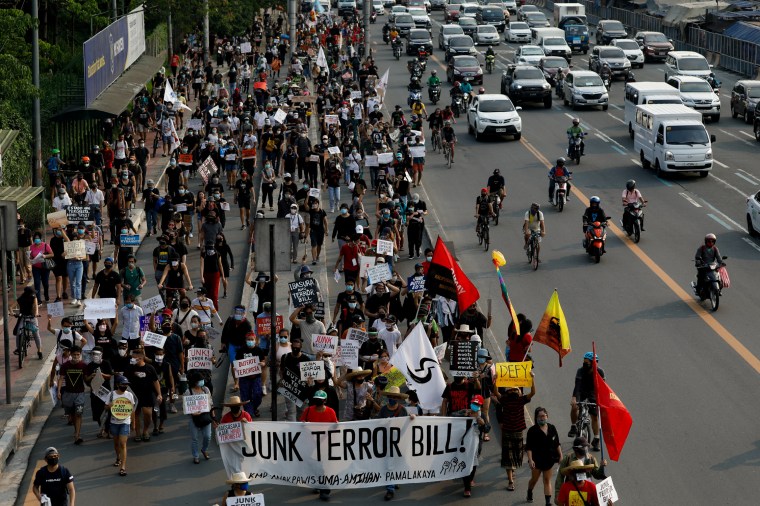Bangkok, June 10, 2020 – Philippine President Rodrigo Duterte should reject pending anti-terrorism legislation or amend the law to ensure that it does not threaten press freedom, the Committee to Protect Journalists said today.
The Anti-Terrorism Act of 2020 was submitted to Duterte’s office yesterday after its approval by the House of Representatives and Senate, according to news reports.
Section 9 of the law, which CPJ reviewed, criminalizes incitement to commit terrorism “by mean of speeches, proclamations, writings, emblems, banners or other representations tending to the same end,” and establishes new anti-terrorism courts specifically to hear cases under the law.
Convictions under the legislation, which does not explicitly define the term “incitement,” allow for prison sentences of up to 12 years.
According to those news reports, Duterte has indicated the legislation should be passed urgently. A Duterte spokesman quoted in those reports said the law would be reviewed before the president signs it.
“President Duterte should come down on the side of press freedom and scrap the Anti-Terrorism Act of 2020, or at least modify the act to ensure that the media cannot be hit with bogus incitement charges,” said Shawn Crispin, CPJ’s senior Southeast Asia representative. “The legislation as written is a direct threat to journalists, and should be rejected.”
CPJ emailed Presidential Communications Office Secretary Martin Andanar for comment, but did not immediately receive a reply.
In March, the Philippine Congress passed the “Bayanihan to Heal As One Act,” which imposed two-month prison penalties and hefty fines for spreading “false news” about the COVID-19 pandemic, CPJ reported at the time.
